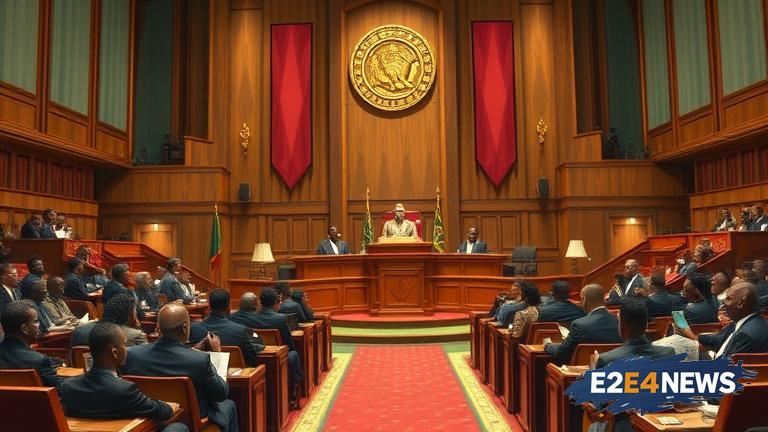The Ghanaian Parliament has adjourned sine die, marking the end of the current session. The Speaker of Parliament, Alban Bagbin, commended Members of Parliament (MPs) for their efforts in building consensus and working together to pass key legislation. During the session, MPs worked tirelessly to pass several important bills, including the Budget Statement and Economic Policy of the Government. The Speaker praised the MPs for their dedication and commitment to the democratic process. He also acknowledged the challenges faced by the House, including the COVID-19 pandemic, and commended the MPs for their resilience. The adjournment of the House sine die means that Parliament will not reconvene until the next session, which is expected to commence in the coming months. The Speaker urged MPs to use the break to engage with their constituents and gather feedback on the work of the House. He also encouraged them to continue working together to build consensus and pass legislation that benefits the country. The current session of Parliament has been marked by several significant events, including the election of a new Speaker and the passage of key legislation. The Speaker’s commendation of MPs for consensus building is seen as a positive development, as it highlights the importance of cooperation and collaboration in the democratic process. The Ghanaian Parliament is composed of 275 MPs, who represent the country’s 16 regions. The House is responsible for passing legislation, approving the national budget, and exercising oversight over the executive branch of government. The Speaker of Parliament plays a crucial role in facilitating the work of the House and ensuring that MPs are able to carry out their duties effectively. The adjournment of the House sine die is a significant event, as it marks the end of the current session and provides an opportunity for MPs to reflect on their work and prepare for the next session. The Speaker’s commendation of MPs is also seen as a call to action, urging them to continue working together to build consensus and pass legislation that benefits the country. The Ghanaian Parliament has a long history of promoting democracy and good governance, and the current session has been marked by several significant achievements. The passage of key legislation, including the Budget Statement and Economic Policy of the Government, is seen as a major accomplishment. The Speaker’s commendation of MPs for consensus building is also seen as a positive development, as it highlights the importance of cooperation and collaboration in the democratic process. The Ghanaian Parliament is committed to promoting transparency and accountability, and the current session has been marked by several significant events, including the establishment of new committees and the passage of legislation aimed at promoting good governance. The adjournment of the House sine die provides an opportunity for MPs to engage with their constituents and gather feedback on the work of the House. It also provides an opportunity for the Speaker and other leaders of the House to reflect on the work of the current session and prepare for the next session. The Ghanaian Parliament is expected to reconvene in the coming months, and the Speaker’s commendation of MPs for consensus building is seen as a positive development, as it highlights the importance of cooperation and collaboration in the democratic process. The current session of Parliament has been marked by several significant events, including the election of a new Speaker and the passage of key legislation. The Speaker’s commendation of MPs is also seen as a call to action, urging them to continue working together to build consensus and pass legislation that benefits the country. The Ghanaian Parliament is committed to promoting democracy and good governance, and the current session has been marked by several significant achievements. The passage of key legislation, including the Budget Statement and Economic Policy of the Government, is seen as a major accomplishment. The Speaker’s commendation of MPs for consensus building is also seen as a positive development, as it highlights the importance of cooperation and collaboration in the democratic process.





